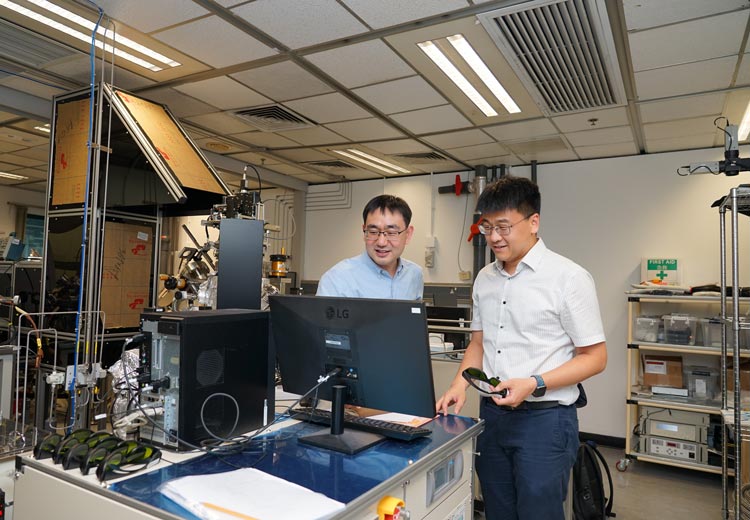How university collaboration is furthering quantum research

Sponsored by

Sponsored by

At the City University of Hong Kong, research into quantum information and quantum materials is raising the prospect of exciting real-world applications
Quantum computing is one of the most exciting technological fields being explored today, and it has potential for governments, industry and scientists alike. One such scientist is Sunny Wang, associate professor in the Department of Physics at the City University of Hong Kong (CityU), and his colleague, assistant professor Denver Li.
“At CityU, we research both quantum materials and quantum information,” Wang explains. “They are related but different. Collectively, this is a large field, with research classified into several distinct areas, which includes the theoretical problems that arise from the physical realisation of quantum information, quantum control and quantum sensing.
“I work more closely in the area of quantum materials,” Li says. “We are particularly interested in a specific class of quantum material known as oxide materials. These materials display superconductivity, quantum magnetism and interface quantum phenomena. Some of these phenomena were discovered many years ago but we would like to explore them further.”
Although much of the work being undertaken by Wang and Li is pioneering, the field’s progress owes much to the research being carried out by their colleagues. “CityU has the strongest quantum information team in Hong Kong, with six faculty members including Jeff Ou, Io Chun Hoi, Xiao Li, Oscar Dahlsten, Zhedong Zhang and myself,” Wang says. “The research being undertaken by this team is uniquely positioned to further the study of quantum information. Our university’s location, connecting China to the rest of the world, is of particular benefit domestically and internationally.
“My colleagues at CityU are working with various techniques to discover new materials that could ultimately lead to new applications, such as quantum computing,” Li says. “Before we can create these applications, we first need to locate, characterise and fully understand the properties of these materials.”
If this greater understanding can be obtained, there is little way of knowing what real-world applications will be discovered. “One of the great aims of quantum materials is enabling room temperature superconductivity,” Li says. “If this can be achieved, it could directly be applied to a number of real-world applications, including magnetic levitation trains, MRI scans and many more.
“While the creation of a fully functioning quantum computer may be some way off, there are immediate uses for quantum sensing,” Wang says. “Quantum optics can also be used to derive extremely accurate measurements of physical quantities, which will have many uses in engineering.”
For Wang and Li’s research to deliver real-world benefits, collaboration will be key – with industry, government and the wider scientific community. “When you are working on quantum materials, you need large facilities and a wealth of expertise,” Li says. “To create something new, you need to work with others. Governments can provide momentum to long-term projects where costs may otherwise prove prohibitive. At the same time, scientific discovery often serves as a kind of frontier, driven by the need to create next-generation devices for the private sector.
“It is simply not possible for a single individual or even group to solve all the challenges around quantum physics,” Wang says. “In markets like Europe, China, Japan and the US, a huge amount of funding comes from the government level as this research could lead to the next technological revolution. Nobody knows yet how far quantum physics could take us, but the scientific community, as well as public and private organisations, is already on board.”
Find out more about the Department of Physics at the City University of Hong Kong.